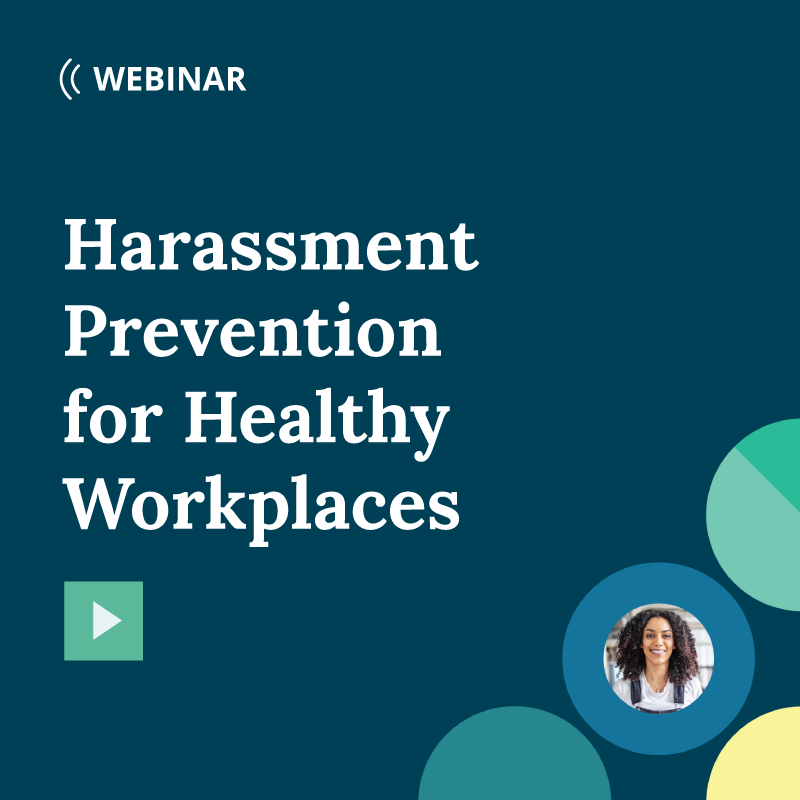NY & NYC SEXUAL HARASSMENT TRAINING
New York Sexual Harassment Training
Syntrio’s employment law courses comply with New York state sexual harassment mandatory training requirements, New York City sexual harassment in the workplace mandatory training requirements, and all federal and state employment laws and regulatory recommendations on the prevention of sexual harassment in the workplace.
Preview the U.S. Workplace Harassment and Discrimination Training Course
6,500+ Organizations Trust Syntrio to Improve – You Can Too!






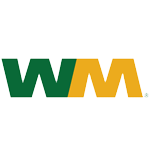








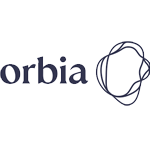

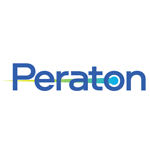
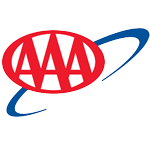


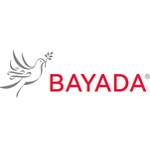




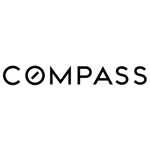


















New York Harassment Training
Mandatory sexual harassment training in New York is relatively new. Training requirements aimed at preventing sexual harassment in the workplace were enacted in 2018 by the New York State Legislature and New York City municipal governments and went into effect in 2019. The New York state and NYC governments did act together in developing the new sexual harassment laws, but there are some slight differences. Before the new employment laws were enacted, Syntrio developed New York State sexual harassment training courses (for managers and employees). Those courses were intended to comply with both the State’s mandatory training requirements and those developed for sexual harassment training in NYC. Syntrio modified its New York courseware after the laws were enacted to ensure that it exceeded the New York and NYC sexual harassment prevention requirements.
To best understand the implications of the laws requiring New York sexual harassment prevention training, it is first necessary to understand the federal employment law scheme, as well as the impact of the United States Equal Employment Opportunity Commission (“EEOC”) opinions and guidance on the subject, as both dictate much of the policy followed by the New York Division of Human Rights and the NYC Human Rights Commission and how those New York agencies enforce the laws.
Syntrio’s New York U.S. Workplace Harassment and Discrimination Training
- Experienced: Syntrio has been developing workplace harassment training since 2002.
- Compliant: Complies with all relevant New York regulatory requirements, including 2021 updates
- Engaging: Engages learners through short, live-action stories and practical exercises.
- Comprehensive: Addresses all required topics plus contemporary issues, such as workplace relationships, bystander intervention, diversity, equity, and inclusion.
- Flexibility: Versions for managers (1 hour) and non-managers (45 minutes); other versions that incorporate New York with additional state training for easier deployment for multi-state businesses.
- Industries: Six industry verticals, including office/general, healthcare, industrial, hospitality, retail, and higher education.
New York Adopts Changes to Model Policy and Model Training Documents
The New York Department of Labor, in collaboration with the New York Department of Human Rights, recently made revisions to the New York State model training and model sexual harassment policy documents on April 11, 2023. Since announcing these revisions, Syntrio has received numerous inquiries from employers about how these changes affect compliance with their industry-leading New York anti-harassment courses. To assist employers, Syntrio has prepared a guide that provides an explanation of the reasons behind the revisions, the requirements of New York law, and how their courses comply with New York State law.
Federal Sexual Harassment Law
Federal anti-discrimination laws encompass the national sexual harassment law, from which New York state and New York City sexual harassment requirements and mandatory sexual harassment training laws have evolved. These federal laws are also the set of statutes from the United States EEOC sexual harassment policy on enforcement are derived from. In states such as New York, where sexual harassment and job discrimination charges are commonly filed administratively with the EEOC before going to court, the agency and its guidance play a pivotal role in anti-discrimination and anti-harassment litigation. The federal anti-discrimination laws prohibit employment discrimination, sexual harassment in the workplace, and other forms of workplace harassment and set the floor from which state and local laws can enact greater protections against job discrimination and workplace harassment. The EEOC’s guidance about workplace sexual harassment also guides much of the New York State Division of Human Rights Policy and the New York City Human Rights Commission on things such as the role of mandatory workplace sexual harassment training.
The most notable federal employment law covering discrimination and harassment in the workplace is Title VII of the Civil Right Act of 1964, which covers employers who employ or have employed 15 or more employees for each working day in 20 or more calendar weeks in the current or preceding calendar year. In addition to prohibiting employment discrimination, courts have held that Title VII prohibits harassment in the workplace, sexual harassment in the workplace, hostile environment sexual harassment, and other forms of employment discrimination and workplace harassment, which in recent years has become a key focus of attention on federal anti-discrimination laws and other related employment laws (including an increased emphasis on mandatory training).
Under the federal employment law scheme, harassment in the workplace is a form of job discrimination that occurs when unwelcome conduct (such as verbal sexual harassment or physical, sexual harassment) that is based on race, color, religion, sex (including sexual orientation, gender identity or pregnancy), national origin, age (over 40), disability occurs. Harassment in the workplace becomes illegal where: a) enduring the offensive conduct becomes a condition of continued employment, or b) the conduct is severe or pervasive enough to create a hostile or intimidating work environment that a reasonable person would consider hostile or abusive.
New York State Harassment Law
New York employment law is complicated for employers to navigate and comply with, as it tends to skew friendly to the employee. The New York State Human Rights law prohibits workplace discrimination and workplace sexual harassment but also adds additional layers of protection above that provided by Title VII for characteristics such as familial status and past criminal conviction (among others). Notably, in 2018, former New York Governor Cuomo signed a bill that amended New York State harassment law to require mandatory sexual harassment training to be conducted by nearly every employer in the state annually.
New York City Anti-Harassment Law
The New York City Human Rights Law (Title 8 of the Administrative Code of the City of New York) prohibits (among other things) sexual harassment and discrimination in employment. In 2018, the Stop Sexual Harassment in NYC Act was signed and created an independent body of NYC sexual harassment prevention requirements in addition to New York State’s requirements. Thankfully, none of the requirements are mutually exclusive, and Syntrio’s New York sexual harassment training courses fully comply with NYState anti-harassment law and NYC anti-harassment law.
New York State and New York City Workplace Sexual Harassment Training Requirements
Since 2018 (going into effect in 2019), under New York State sexual harassment law and New York City sexual harassment prevention law, employers in New York have been required to comply with a series of sexual harassment at the workplace training requirements on an annual basis. While the New York City harassment training law is a companion (and separate) sexual harassment prevention training law, the two conditions can be fulfilled concurrently on an annual basis by taking one of Syntrio’s NY sexual harassment training courses.

EMPLOYMENT LAW: HARASSMENT AND DISCRIMINATION COURSE
COMPENSATION AND BENEFITS
Meal & Rest Break Training
Understanding the Family Medical Leave Act (FMLA)
Wage & Hour Basics
CORRECTIVE ACTION
Avoiding Wrongful Termination
Employee Discipline
DISCRIMINATION
Employment Discrimination: Maintaining a Fair Workplace
Employment Discrimination: Sex
Employment Discrimination: Race, Color, and National Origin
Employment Discrimination: Religion
Employment Discrimination: Age
Employment Discrimination: Disability
Employment Discrimination: Sexual Orientation and Gender Identity
Creating a Bully-Free Workplace
DISCRIMINATION ETHICAL SNAPSHOTS
Festival Time
The Job Interview
Up or Out
Unpleasant News
An Open Position
HARASSMENT
U.S. Workplace Harassment and Discrimination
Bystander Intervention and Awareness and Sexual Harassment
Bystander Awareness and Intervention for Chicago
Preventing and Addressing Sexual Harassment
Preventing Sexual Harassment
Preventing Workplace Harassment
Workplace Harassment and Bullying: Managing Threats to a Respectful Work Culture
California Preventing Workplace Harassment
Connecticut Sexual Harassment Training for Employees
Delaware Preventing Sexual Harassment
Illinois Preventing Sexual Workplace Harassment
Maine Preventing Sexual Harassment
New York Preventing Sexual Harassment
Campus Aware: Sexual Violence Prevention
Harassment: Ensuring a Respectful Workplace
Preventing Unlawful Harassment for Colleges and Universities
Preventing Unlawful Workplace Harassment for Federal Agencies
Multi-Jurisdiction Preventing Workplace Harassment
Canada Harassment and Violence at Work
U.S. Workplace Harassment - Chicago
SPEAK UP ETHICAL SNAP SHOTS
Speak Up - Feeling Uncomfortable A/B
Speak Up - Harassment A/B
Speak Up - Health and Safety
Speak Up - Offensive Remark A/B
Speak Up - Something Missing
HARASSMENT ETHICAL SNAPSHOTS
The Viral Email
Jack and Dani Went Up a Hill
Third-Party Harassment
Making a Complaint
Making a Complaint 2
The Panda
Talking Sports
Unexpected Consequences
An Open Position
Workplace Disrespect?
A Very Important Client
A Very Important Client (B)
A Very Important Client (C)
Social Tony
Too Close for Comfort (A)
Too Close for Comfort (B)
Bullying
Workplace Harassment
Sexual Harassment
INVESTIGATIONS
RECRUITMENT
Legal Aspects of Interviewing and Hiring
RETALIATION ETHICAL SNAPSHOTS
Retaliation
Rocking the Boat
SUBSTANCE ABUSE
Managing Substance Abuse in the Workplace
What Type of Organization Must provide New York Harassment Training
All types of organizations are subject to the New York State sexual harassment law and sexual harassment training NYC law and must provide training. While the New York State law does not set a minimum number of employees as a threshold requirement, the New York City workplace sexual harassment law specifies that any employer with 15 or more employees is subject to the annual training requirement. Because the New York State sexual harassment law supersedes the NYC law, all New York employees must receive training.
What Segments of the Workforce Must Receive Sexual Harassment Training and Workplace Harassment Training?
Managers, supervisors, and employees (including temporary, part-time, and seasonal employees) must receive training under workplace sexual harassment laws. Additionally, government contractors who provide goods and services to New York and independent contractors in NYC must receive training. Lastly, under the NYC sexual harassment training law, employees anywhere that have “contact” with New York City must receive mandatory training. The law does not specify the threshold level of “contact.”
How Frequently Must New York Sexual Harassment Training Occur?
Under the NYC sexual harassment law and NY state harassment law, training must be conducted as soon as possible after employment commencement and must occur annually.
What is the Minimum Time Duration of New York Sexual Harassment Training?
Unlike some other states, there is no minimum duration for training under either the New York State or New York City sexual harassment prevention training requirements.
What are the Mandatory Content Requirements Under the New York Sexual Harassment Training laws?
New York State and New York City have stated that training must be interactive and must contain the following elements:
- A detailed explanation of what constitutes sexual harassment at work (and both the State and NYC definitions);
- Examples of conduct that constitutes sexual harassment (including the unique approach taken by NYC);
- Information on the illegality of retaliation and measures of protected activity under the law;
- Information on bystander intervention, including information on how to engage in bystander intervention;
- Information on the duties specific to supervisors concerning the prevention of sexual harassment;
- Information on the remedies available to victims of workplace sexual harassment;
- Information about employees’ rights to adjudicate complaints of sexual harassment, both administratively and judicially, and the forums in which to do so; and
- Contact information for equal employment opportunity agencies.
STATE-MANDATED HARASSMENT TRAINING REQUIREMENTS
Several states have enacted mandatory training laws that require employers to provide sexual harassment training to their managers and employees.
Click on each state to learn more about Syntrio’s sexual harassment training products dedicated to exceeding compliance with mandatory training laws in each state. You will also learn about the requirements in that particular jurisdiction.
What Records Must be Kept Following New York Workplace Sexual Harassment Training?
New York State, sexual harassment law encourages employers to retain training records. However, under NYC workplace sexual harassment law, employers must have a signed acknowledgment that sexual harassment training was completed.
What Potential Penalties for Failing to Conduct Mandatory Sexual Harassment Training in New York?
Under the state and NYC sexual harassment in the workplace laws, monetary fines begin at $100 per violation and increase from there.
What are Acceptable Means of Complying with the New York State and New York City Sexual Harassment Training Requirements?
While the laws do not specify what means are acceptable, the state law says that when an online method of complying with the training requirements is used, someone must be available to answer questions. This implicitly states that courses such as Syntrio, which have a method of contacting a training for a quick response to questions, comply with the state and NYC sexual harassment training laws.
Do Syntrio’s New York Anti-Harassment Courses Comply with all New York State and New York City Mandatory Harassment Training Requirements?
Yes. Syntrio’s courses were developed to exceed the requirements set forth by New York State and New York City agencies. Our courses are intended to improve culture and are created for the employee’s benefit. Your learners can be confident they will be taking courseware designed not just to comply with the law but give practical guidance that will be valuable both at and away from work.
Preview the U.S. Workplace Harassment and Discrimination Training Course

Why Syntrio’s New York Sexual Harassment Training is Your Best Source of Compliance with Sexual Harassment Training Requirements in NYC and New York State
Syntrio has been the leader in online sexual harassment training for over 20 years.
Since its inception in the workplace sexual harassment training market over 20 years ago, Syntrio has been aware that it needs to be different to help employers not only comply with New York sexual harassment training requirements but also to help employers empower their workforce to speak up and make an actual difference in workplace culture. The first anti-harassment training laws were enacted in the early 1990s when Syntrio began developing content intended to assist employers in educating their workforces on employment law, workplace harassment, and employment discrimination (including in states like New York that did not have mandatory sexual harassment training law at the time). As the 2010s ended, more states enacted sexual harassment training laws. Syntrio’s sexual harassment prevention training remains the sexual harassment prevention training relied upon by lawyers and HR professionals seeking training that will truly make a difference.
The Syntrio approach to New York Sexual Harassment Prevention is Different.
While the drive to provide sexual harassment training remains unchanged, expert views on the type and focus of sexual harassment training in workplace training have evolved. Many of Syntrio’s competitors continue to provide “check the box” sexual harassment prevention training in New York (and elsewhere) that was primarily developed more than five years ago. These older harassment training programs are often aimed at combating the harmful effects of workplace sexual harassment on the organization rather than on the person making the complaint. When anti-harassment training focuses on illegal sexual harassment and job discrimination and how companies can avoid liability rather than actual incident prevention and improve workplace culture, employees are proven more likely to tune out during the session. Syntrio knows legalistic, compliance-focused training does not resonate with employees and has instead developed sexual harassment prevention training that works.
The solutions that help to improve workplace culture and help reduce the number of incidents of workplace harassment involve incorporating elements of a full-scale program of civility and respect training and any other number of employee-focused employment law training that time and budget will allow improving organizational culture. Syntrio understands the time and budgetary constraints and therefore builds in elements of its more extensive library to its sexual harassment prevention training to give the learner something they can use for their benefit (and mental and physical well-being).
Syntrio knows that in a crowded market is essential to provide training that does more than comply with New York and NYC sexual harassment training requirements. As decision-makers, you must also clarify to your workforce that you care about their well-being. Therefore, a Speak Up! and Listen Up! program aimed at empowering your workforce to report incidents is a critical aspect of any New York sexual harassment training program and is an essential aspect of a cultural improvement plan. Additionally, employers must provide training that teaches employees to respect one another and demonstrates the organization’s respect for its workforce. In addition to understanding what illegal sexual harassment is, employees must understand one another’s sensitivities and the organization’s understanding that everyone has individual needs. Syntrio’s New York sexual harassment prevention training concisely meets all these lofty goals.


